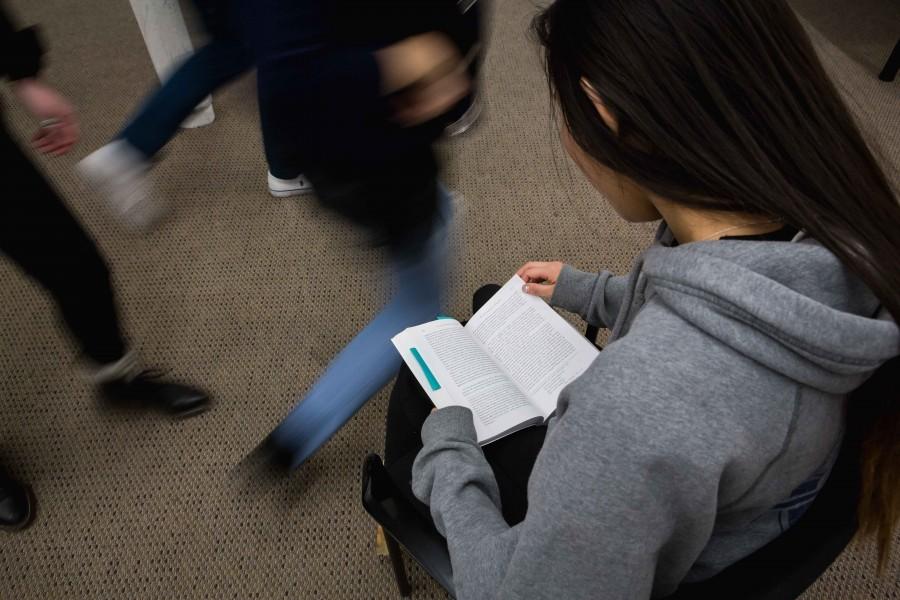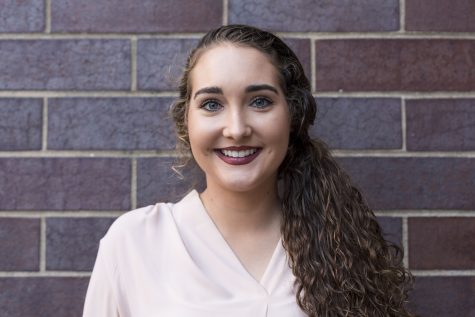Abu Dhabi Language Lab: Bilingual People Are Smarter
Studies reveal that people who speak two languages are able to better focus with distractions.
February 16, 2016
It may be time to enroll in another language course next semester. Researchers at the Neuroscience of Language Lab at NYU Abu Dhabi studied a group of 19 bilingual subjects and concluded that being fluent in multiple languages may improve cognitive function. The subjects were fluent in both English and Arabic and were asked to verbally respond how they would complete various tasks, such as ordering a cup of coffee, while researchers studied how their brains’ reacted.
Graduate student Esti Blanco-Elorrieta and Associate Professor of Linguistics and Psychology Liina Pylkkänen lead the study, and its findings may be used to support the bilingual advantage hypothesis.
The hypothesis states bilinguals find it easier to focus on a task while simultaneously tuning out distractions. This theory rests on the idea that bilinguals use cognitive control to actively suppress one language while speaking or listening in another.
Blanco-Elorrieta and Pylkkänen used a magnetoencephalography machine to measure brain activity and see which specific regions were activated when presented with a stimuli. Participants switched back and forth between responding in English and Arabic when presented with different colored cards.
Blanco-Elorrieta spoke to the Dubai news outlet 7 Days and said her research concluded that benefits of being bilingual can apply to productive tasks such as being able to express yourself but not to perceptive tasks like understanding information that’s being presented.
“Our findings show that different parts of the brain are used for switching between languages in speaking and listening, which is a novel finding because no one has done this kind of comparison before,” Blanco-Elorrieta said to 7 Days.
However, some NYU students are skeptical of the study’s findings. CAS sophomore Bismah Akhter feels being bilingual in Urdu and English has helped her learn more languages, but hasn’t helped
her concentration.
“In terms of studies, my bilinguality has definitely helped me especially in the area of learning new languages,” Akhter said. “When you already have your feet wet with two distinct languages, learning more languages isn’t all that difficult. But in terms of focus and attention span, it doesn’t
really help.”
However, Stern sophomore Karen Fich is fluent in Spanish and English and says knowing both languages gives her a better understanding of both dialects.
“Each language that I speak has words that the other language doesn’t,” Fich said. “Whenever I’m working on something, I think in both of the languages that I speak and am able to be more productive. Also, I am able to use the Latin roots a lot in what I am working on because the words are similar to Spanish and I feel like I have a better understanding of some words.”
CAS freshman Daniel Brioso said coming from a bilingual household has helped him access
information quicker.
“Between Spanish — my native language — and English, I can usually jump between both lingual capacities and translate mentally, which in turn strengthens my understanding of concepts in both languages,” Brioso said. “It also broadens my knowledge of the world, because most often English and Spanish terms share roots, so overall, it does help my focus. I couldn’t be more grateful to have grown up with a
bilingual advantage.”
A version of this story appeared in the Tuesday, Feb. 16 print issue. Email Anne Cruz and Lexi Faunce at [email protected].



























































































































































